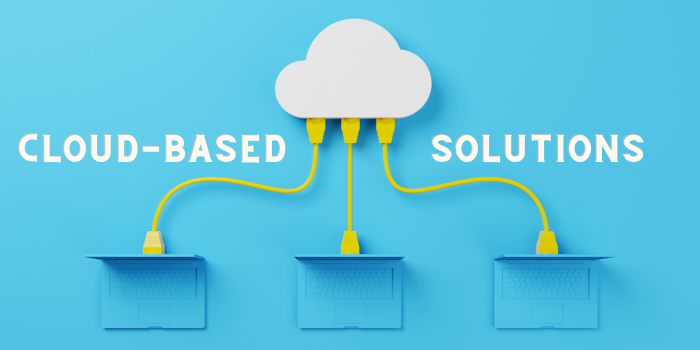The Shift Towards Cloud-Based Solutions
The rise of cloud-based software solutions is reshaping the way businesses operate, offering unparalleled flexibility and scalability. As more organizations move their operations online, cloud-based solutions have become essential for staying competitive in a fast-paced market.
Flexibility and Accessibility
One of the key advantages of cloud-based software is its flexibility. Businesses can access their data and applications from any device with an internet connection. This accessibility ensures that teams can collaborate effectively, whether they’re in the office or working remotely. The ability to scale resources up or down based on demand further enhances this flexibility.
Cost Efficiency
Cloud-based solutions often provide cost-saving benefits. Instead of investing in expensive hardware and infrastructure, businesses can leverage cloud services on a subscription basis. This pay-as-you-go model allows companies to only pay for the resources they need, reducing overall IT costs. Maintenance and updates are also managed by the service provider, further lowering operational expenses.
Enhanced Collaboration
Cloud-based software promotes enhanced collaboration by providing real-time access to shared files and applications. Teams can work together seamlessly, regardless of their physical location. Features like real-time editing, version control, and instant file sharing streamline workflows and improve productivity.
Data Security and Compliance
With the rise of cloud-based solutions, data security has become a top priority for service providers. Many cloud platforms offer advanced security features, including encryption, multi-factor authentication, and regular security audits. These measures ensure that sensitive business data is protected from unauthorized access. Additionally, cloud providers often comply with industry regulations, helping businesses meet compliance requirements.
Disaster Recovery and Business Continuity
Cloud-based software solutions offer robust disaster recovery and business continuity options. In the event of a system failure or data loss, businesses can quickly restore their data and resume operations. Cloud providers typically offer automated backups and redundancy, ensuring that data is safe and accessible even in emergencies.
The Role of AI and Automation
Artificial intelligence (AI) and automation are playing a significant role in the evolution of cloud-based solutions. Many cloud platforms now incorporate AI-driven tools that automate routine tasks, analyze data, and provide actionable insights. This integration of AI enhances the efficiency of cloud-based software, allowing businesses to operate more intelligently.
Future Trends in Cloud Computing
The future of cloud-based software solutions looks promising, with ongoing innovations driving the industry forward. Trends like edge computing, hybrid cloud environments, and AI integration are expected to further revolutionize how businesses utilize cloud technology. These advancements will likely make cloud-based solutions even more integral to modern business operations.
Boosting Your Web Presence with OneCatWeb
At OneCatWeb, we are dedicated to helping businesses build their online presence with user-friendly websites and optimized digital strategies. Whether you’re looking to redesign your site or enhance your SEO, our team is here to assist you every step of the way. For those who enjoy online entertainment, you can also check out https://www.gambling360.com/online-blackjack/ for a great blackjack experience.
Conclusion
The rise of cloud-based software solutions is transforming the business landscape, offering benefits like flexibility, cost efficiency, enhanced collaboration, and data security. As businesses continue to embrace cloud technology, they can expect to see ongoing improvements in productivity, scalability, and innovation. Cloud-based solutions are not just a trend; they are the future of how businesses operate in a digital world.











